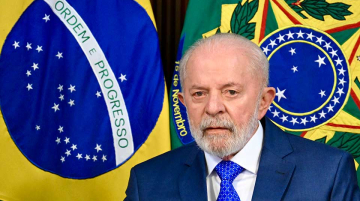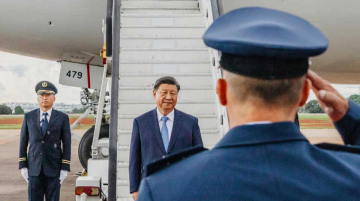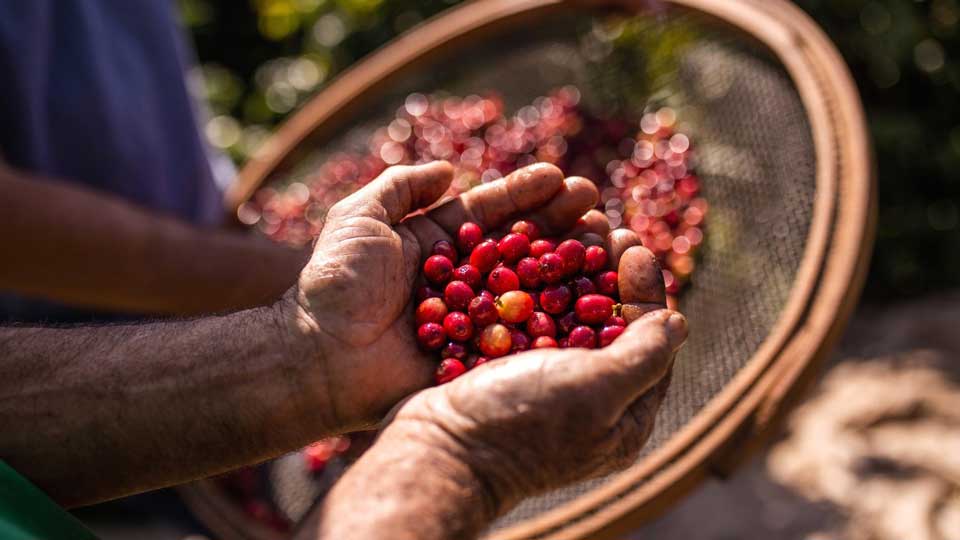
Since 2018, São Paulo–based businesswoman Carla Guindani has been eyeing the Chinese market. That year, she was invited by ApexBrasil, a Brazilian government agency dedicated to promoting exports, to exhibit family farming products at the Shanghai International Food Exhibition. At the time, Guindani was head of a small farmers’ cooperative called Terra Livre, so she brought products made by social movements to display.
The positive reception surprised Guindani and revealed the export potential of China. Once back in Brazil, she founded the company Raízes do Campo. It is dedicated to structuring small farmers’ production chains, and marketing products such as chocolate, honey, black pepper, and, above all, coffee, on the national and international markets. After delays imposed by the Covid-19 pandemic, the business gained momentum in December 2023, when it was authorized by the General Administration of Customs of China (GACC) to export green coffee – the unroasted, raw beans of the coffee plant. The authorization was renewed in July this year and is now valid for another five years.
Raízes do Campo’s export authorization is one of 183 recently granted for Brazilian coffee by the GACC. Since November 2023, it has issued 235 such permits, according to a survey of Chinese port data conducted by Dialogue Earth.
This group comprises a diverse range of companies: from multinationals such as Cofco International, Louis Dreyfus, and Mitsui & Co., to large national exporters such as Unicafé and Tristão Trading, as well as 14 small producer cooperatives.
According to Guindani, the trend has been for large producers to take the lead in meeting Chinese demand. Much of the market seeks high volumes at low prices, with little attention paid to socio-environmental issues. But she sees room for smaller businesses like hers.
Raízes do Campo is betting on specialty and certified coffees, such as organic and agroecological coffees. The company works with about 2,000 cooperative families in different regions of Brazil, exporting 120 tonnes of Arabica coffee annually to Chinese coffee shops interested in specialty beans.
“It’s a small volume and high added value for very specialized coffee shops,” Guindani tells Dialogue Earth.
Brazilian Coffee Winning Over China
The GACC’s new approvals come at a time when Brazil and China are deepening trade relations. Chinese consumers are exhibiting a growing appetite for coffee, while the United States, still the largest market, is imposing tariff barriers on the bean.
In the past five years, Brazilian coffee exports to China have more than quintupled: from less than 10,000 tonnes in 2020 to more than 55,000 in 2024, with a peak of 79,000 in 2023, according to Dialogue Earth’s analysis of foreign trade data issued by the Brazilian government. For now, China ranks 12th among the main markets – far behind leaders such as the United States and Germany, which each imported more than 440,000 tonnes last year.
However, the current trade war initiated by the U.S. may change this scenario, as it has imposed a 50% tariff on Brazilian products, including coffee. Until 2024, the country had led coffee imports for seven of the 10 preceding years. In August this year, however, when the measure came into force, purchases fell to their lowest level in a decade for that month, according to foreign trade data.
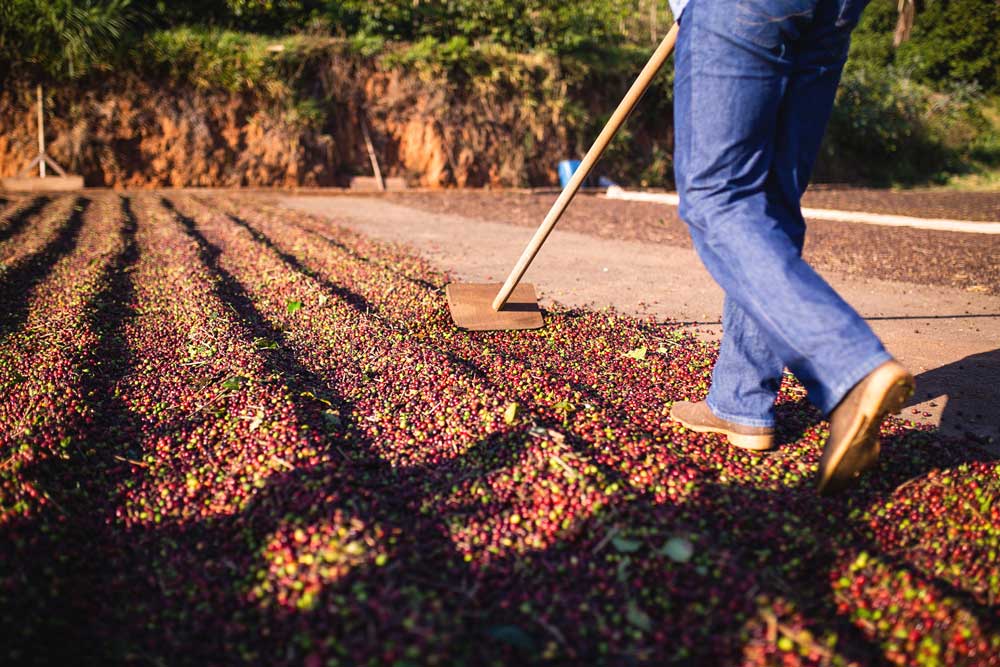
The Brazilian Coffee Exporters Council (Cecafé) states that the authorization of new companies to export to China does not mean – for now at least – that the country will fill any gap left by the United States. In a statement, the organization’s president, Márcio Ferreira, said the measure “does not necessarily imply an increase in shipments” and stressed this progress should occur “naturally, over the coming years and decades”.
Mariana Bahia, executive director of the Chinese Chamber of Commerce in Brazil, also takes a cautious view. She tells Dialogue Earth that Brazilian coffee is already establishing itself as a “strategic item” for diversifying commodities exported to China. On the other hand, she explains that the Chinese market is still emerging.
“In the short and medium term, it is unlikely to reach the same scale and importance that soybeans and meat have for bilateral trade,” she says. China is the leading purchaser of these items from Brazil.
Coffee, on the other hand, has been gaining ground among young urbanites in China who are interested in new products, according to Bahia. She explains that, for this generation, the drink has become part of their routine, associated with convenience, socialising and status. “Now, the habit is spreading to other age groups,” she adds.
A symbol of this popularisation is Luckin Coffee. Founded in 2017, it has become the largest chain in China, with more than 22,000 stores and a reported 2024 net revenue of USD 4.7 billion.
Brazil became part of this expansion in 2023, when Luckin partnered with ApexBrasil and visited producers in the western state of Rondônia to learn about and purchase Amazonian coffee. In June 2024, Brazil signed an agreement to supply 120,000 tonnes of coffee to the chain annually. Several months later, the deal was expanded to 240,000 tonnes by 2029, for an estimated combined total of USD 3 billion.
“This partnership is just the beginning,” said Luckin Coffee’s CEO, Jinyi Guo, at the signing of the agreement in November. “In the future, we want to further expand our collaboration.”
What About Small Producers?
While large companies have competitive advantages when it comes to bilateral agreements, smaller Brazilian coffee producers are also enthusiastic about the emerging Chinese market.
Dialogue Earth talked to Roberto Carlos do Nascimento, president of the Southern Minas Gerais Campesinos Cooperative (Camponesa), which unites several campesino (peasant farmer) settlements in the state of Minas Gerais. “China is a country with a very large population. Although coffee is a very recent thing, any 1% growth means a lot for a given product,” he said.
China is a country with a very large population. Any 1% growth means a lot for a given product.
Roberto Carlos do Nascimento, president of the Southern Minas Gerais Campesinos Cooperative (Camponesa)
Camponesa has already sent samples of its Guaií coffee – an organic, agroecological line – to Raízes do Campo for testing in the Chinese market. The beans are supplied by its partner, Quilombo Campo Grande, which produces up to 12,000 bags of Arabica coffee annually. Camponesa purchases 1,000 of these bags, allocating 10% of that volume to Raízes do Campo for sale in China.
“We are discovering the ideal flavor and aroma for the Chinese market,” says Nascimento.
In addition to the United States, Brazilian coffee has a strong presence in Europe. Between January and August this year, almost half of the bean exports were destined for the continent, according to Cecafé.
This is the main market for Coopfam, a cooperative of family-run farms in and around the municipality of Poço Fundo, also in Minas Gerais. Coopfam sends more than 90% of its production to the United Kingdom, Germany, and Switzerland. To meet European buyers’ increasing sustainability requirements, its 500 coffee growers have acquired Fairtrade certification, which requires fair remuneration, agricultural practices that do not degrade the environment, and for each coffee batch to be traceable. Among those coffee growers, 100 also have organic production.
“A portion of the income from each bag of coffee must be reinvested in improving productivity, preserving the environment and investing in social projects in the community,” says Rodrigo Araújo, Coopfam’s commercial coordinator.
Environmental Footprints
In 2024, Coopfam began the process of qualifying for export to China. To Araújo, the country represents “infinite potential”. In his opinion, however, Coopfam’s socio-environmental certifications are unlikely to be an advantage because they were “created in Europe for European consumers” and are less valued by the Chinese.
Bahia, from the Chamber of Commerce, says Chinese coffee certification does include environmental requirements: “The GACC sets maximum limits for pesticide residues, requiring exporters to use only approved inputs and follow proper cultivation and application practices.”
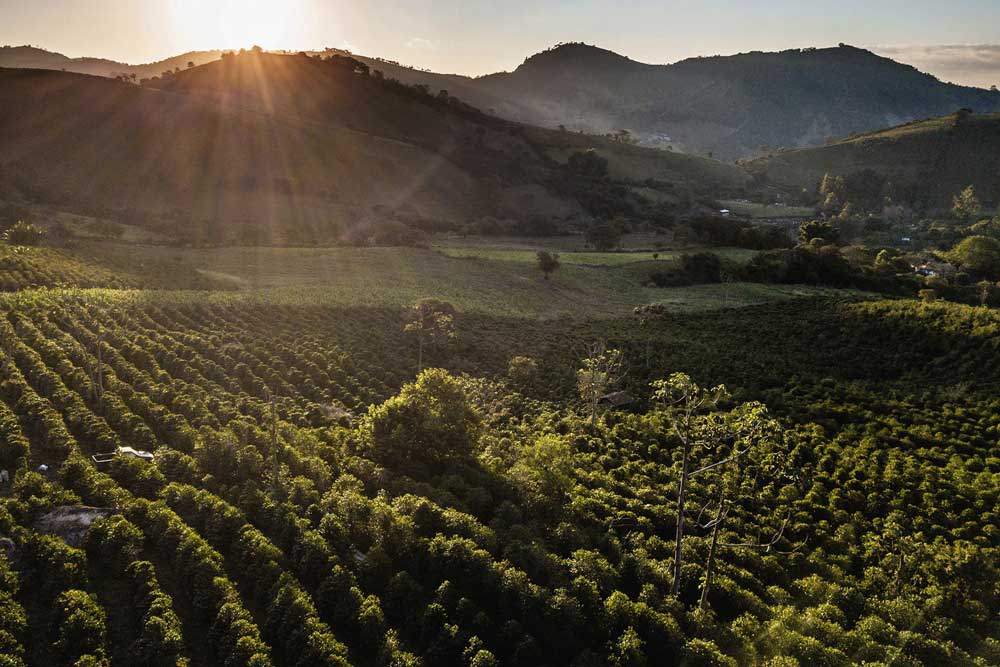
Guindani from Raízes do Campo, which focuses on small-volume and agroecological exports, has been through this certification process. She says that while it is bureaucratic, laborious, and expensive, it also does not require strict environmental certifications. For this reason, she fears the growing Chinese demand for coffee represents “a major environmental risk”. She adds that this new demand for coffee from traditional growing regions like Minas Gerais and Espírito Santo comes at a time when climate change is also adding pressure, raising questions over how to adapt – and potentially migrate farming operations – to survive.
Araújo acknowledges Coopfam would need to expand production to meet Chinese market demand – a challenge, considering that stocks have been hit by a year of frosts and two years of severe droughts in Minas Gerais. Still, he believes that Brazilian legislation is sufficient to curb coffee-related deforestation.
In 2023, the Federal University of Minas Gerais (UFMG) noted that, after 2008, no significant deforestation had been detected on 99% of the 115,000 Minas Gerais coffee farms registered with Brazil’s Rural Environmental Registry (CAR). The data was produced by the Minas Gerais State Forestry Institute’s (IEF) native vegetation monitoring program.
These findings qualify the region’s coffee production as “deforestation-free” under European Union classifications. In addition, UFMG found that about a third of those coffee farms operating in rural areas had more native vegetation than the amount mandated by the Brazilian Forest Code.
Nascimento, from Camponesa, says that it should not be necessary to open up new areas to meet Chinese demand, highlighting the Brazilian government’s plan to recover 40 million hectares of degraded pastureland over 10 years and make it productive, including for coffee cultivation. To achieve this goal, the country is seeking a partnership with China.
But even with such plans, Nascimento acknowledges that pressures from any added demand, coupled with a general lack of environmental oversight in agribusiness, mean that the risk of expansion of the agricultural frontier still exists. He says that authorities responsible for monitoring, inspecting, and approving agricultural expansions “need to be increasingly strong and present to curb these irregular advances and growth.”
Kevin Damasio is a Brazilian journalist and writer focused on social and environmental issues, including works published on the Rio Grande Rise ocean ridge and Brazil’s waters.
This article was originally published on Dialogue Earth under the Creative Commons BY NC ND license.


